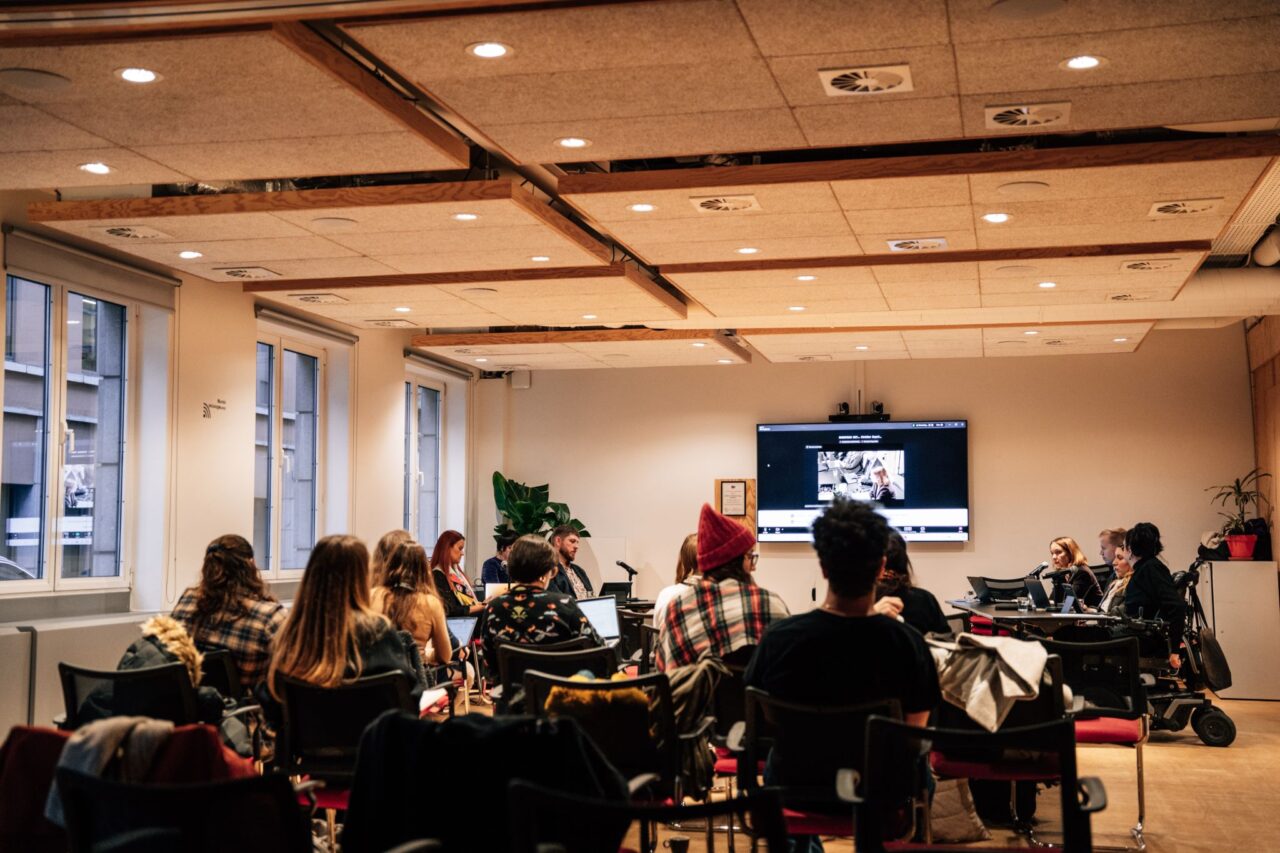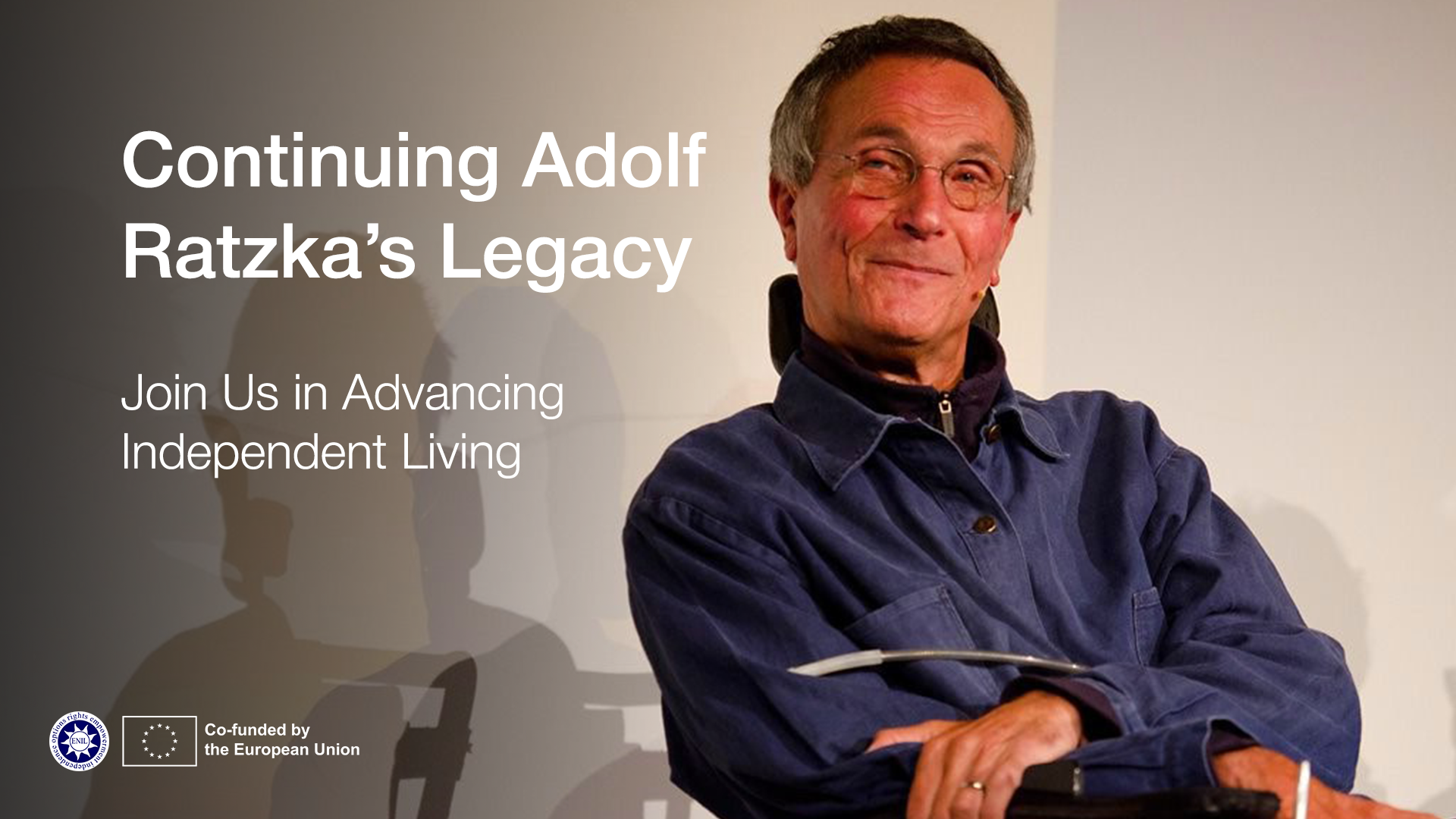This week, the European Network on Independent Living held a policy debate titled “Make Independent Living Services a priority in the EU Disability Strategy”. The event brought together representatives of disabled people’s organisations, policy experts, service providers, and EU institutions to underline the urgent need to place Independent Living Services at the centre of the next EU Disability Strategy.
The discussion opened with Florian Sanden, ENIL’s Policy Coordinator, who set the tone by highlighting a concerning reality: many commitments made over recent years have not translated into meaningful progress. He drew attention to the latest figures showing that institutionalisation has increased by 14–29%, the disability employment gap has widened, and 28.8% of disabled people remain at risk of poverty, compared to 17.9% of non-disabled people. These figures, he stressed, show how inconsistent and insufficient national support systems remain and why stronger, coordinated EU action is urgently needed.
The debate opened with Nadia Hadad, Co-Chair of ENIL’s Board, who introduced The 18 Pillars of Independent Living. She stressed that independent living is a right grounded in the UN CRPD, not just a service. Across many Member States, these pillars remain poorly supported: access to personal assistance is uneven, information on rights is limited, and suitable housing options are lacking. Nadia warned that institutionalisation continues to be the default because community-based alternatives are often underdeveloped or unavailable.
Antonella Candiago, ENIL’s Policy Officer, presented findings from the Independent Living Survey 2024. The survey shows that no country fully guarantees independent living, with the highest scores being 3.2 (Iceland) and 2.9 (Sweden) on a 1–5 scale. Antonella noted that many respondents still face restricted access to personal assistance, complex assessments, and limited community-based services, all of which contribute to continued institutionalisation. She underlined that, despite isolated examples of progress, overall development remains slow and uneven across Europe.
Providing a national and Council-level perspective, Esben Asmussen, Special Attaché at the Permanent Representation of Denmark to the EU, explained that while some countries are advancing reforms, progress remains highly uneven. He highlighted the strong link between housing and independent living – a connection that is increasingly recognised in Council discussions. Esben referred to the emerging Council conclusions, which call on the European Commission to provide clearer guidance, improve monitoring, and ensure the involvement of disabled people and NGOs in policymaking. He expressed confidence that Cyprus, as the next Council Presidency, will build on this work.
Christian Bayerlein, disability rights activist and personal budget holder, brought the lived experience dimension to the discussion. He demonstrated how personal budgets, when designed around autonomy, enable disabled people to hire assistants, organise their daily routines, and fully participate in society. He contrasted this with systems that restrict flexibility and leave people dependent on service providers. Christian closed by stressing that no additional money should go to institutions.
From Malta, Aquilina Maria Theresa presented recent reforms to the country’s personal assistance scheme. Malta has introduced clearer eligibility rules and strengthened the focus on enabling people to manage their own assistance. She highlighted the importance of predictable funding and the direct involvement of disabled people in shaping reforms. Malta’s progress, she noted, shows what can be achieved through sustained investment and collaboration, while also illustrating how national efforts benefit from stronger EU guidance to improve consistency across Member States.
Lucie Davoine, Head of the Disability Unit at the European Commission’s DG Justice, responded to the issues raised. She acknowledged the gaps identified in the Independent Living Survey and confirmed that strengthening independent living will be a key element in preparing the next EU Disability Strategy. Lucie stressed the need for clearer monitoring and indicators, stronger alignment with Article 19 of the UN CRPD, and meaningful involvement of disabled people and their organisations. She also noted the importance of improving the quality and availability of community-based services across the Union.
Finally, Florian Sanden, ENIL’s Policy Coordinator, presented ENIL’s key policy recommendations. He called for the creation of a European Strategy on Independent Living Services, accompanied by Council and Parliament Recommendations on personal assistance and personal budgets, based on Articles 292 and 153(1)(k) TFEU. Florian emphasised that meaningful modernisation requires shifting funds away from institutions towards community-based supports, and ensuring that disabled people have full choice and control over how assistance is organised.
In closing remarks, Florian summarised the main messages from the debate. He reiterated that fragmented and low-quality systems cannot continue and that a coherent European approach is urgently needed. He also underlined the importance of involving disabled people directly in developing future policy and concluded by calling for true modernisation for services that are based on choice and control.
‘



